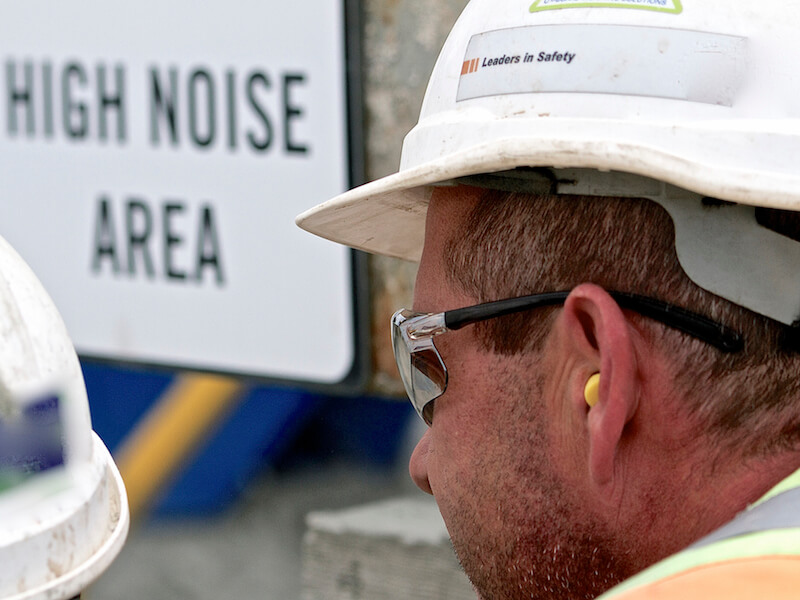Your hearing can be damaged by a noisy workplace and it can also affect your focus. Even moderate noise, when experienced for many hours a day, can begin to undermine your hearing health. This is why questions like “what hearing protection should I use?” are worth asking.
Many of us probably didn’t even realize there were multiple levels of hearing protection. But it makes sense when you stop to think about it. A truck driver won’t require the same amount of protection that a jet engine mechanic will.
Hearing Damage Levels
The fact that 85dB of sound can begin to harm your ears is a general rule of thumb. We aren’t really used to considering sound in decibels (even though that’s how we measure sound – it’s just not a number we’re used to putting into context).
Eighty-five decibels is approximately how loud city traffic is when you’re driving your car. No biggie, right? Wrong, it’s a big deal. At least, it’s a biggie after several hours. Because the duration and frequency of exposure are extremely significant when it comes to damaging noise exposure.
Typical Danger Zones
It’s time to think about hearing protection if you’re exposed to noise at 85 dB or louder for 8 hour days. But that isn’t the only threshold you should be aware of. If you’re exposed to:
- 90 dB (e.g., lawnmower): Damage will start to occur to your ears if you’re exposed to this volume of noise for 4 hours a day.
- 100 dB (e.g., power tools): Anything over one hour will be harmful to your hearing.
- 110 dB (e.g., leaf blower): Injury to your hearing occurs after 15 minutes of exposure to this noise level.
- 120 dB (e.g., rock concert): Any exposure can cause damage to your hearing.
- 140 dB (e.g., jet engine): This amount of noise will cause instant harm and most likely pain to your ears.
When you’re going to be exposed to these volumes of sound, use hearing protection that will bring the decibels in your ears down below 85 dB.
Make Sure Your Hearing Protection Fits Comfortably
The effectiveness of hearing protection is measured by something called a Noise Reduction Rate, or NRR. The higher the NRR, the quieter outside sound will be (temporarily).
It’s very important that you choose hearing protection with a high enough NRR to keep you safe (and your workplace will usually make guidelines about what level might be appropriate).
But there’s another aspect to think about as well: comfort. As it happens, comfort is extremely important to keeping your ears healthy. Why? Because if your hearing protection isn’t comfortable, you’re not going to wear it.
What Are my Hearing Protection Options?
There Are Basically Three Options:
- Earmuffs.
- Earplugs that stay just outside of the ear canal.
- In-ear earplugs
Each type of protection has advantages and disadvantages, but most of your hearing protection decision will depend upon personal preference. For some people, earplugs are irritating, so earmuffs may be a better choice. For other individuals, the ability to put earplugs in and leave them in is a better alternative (of course, at the end of the workday you should take them out for a good cleaning).
Find a Consistent Level of Hearing Protection
Comfort is significant because any lapse in your hearing protection can result in damage. If you take your earmuffs off for ten minutes because they’re heavy and uncomfortable, your hearing can suffer over the long run. So the most crucial decision you can make is to select hearing protection that you’re comfortable leaving in place during your workday.
You’re ears will remain happier and healthier if you find the correct level of hearing protection for your situation.
[blogcta]
References
https://www.cdc.gov/nceh/hearing_loss/what_noises_cause_hearing_loss.html

